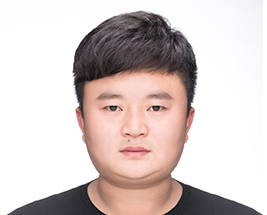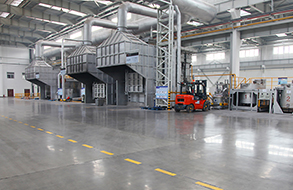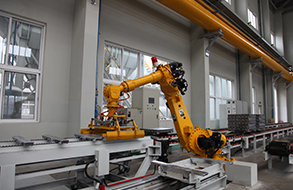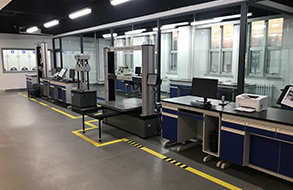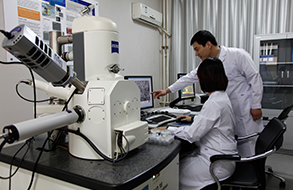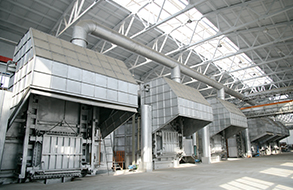Secondary aluminum alloy demand to rebound in Q4
----Interview with Zang Yongyi
Director
Lizhong Group
- Established in 1984, Lizhong Group now has three sections including Lizhong Alloy Group, Lizhong Wheels Group and Sitong New Metal Material Co., Ltd. after more than thirty-year development. On 19 March, 2015, Sitong New Metal Material went public on Shenzhen Stock Exchange and then on 21 December, 2018, Lizhong Wheels Group went public by merger and acquisition through Sitong New Metal Material. Lizhong Group specializes in the production and development of casting aluminum alloy, wrought aluminum alloy, aluminum alloy wheels, functional alloy, precision modes and automatic metallurgical equipment with products applied in the auto, high speed railway, electronics, aerospace, machinery and vessel industries. By late 2018, Lizhong Group has more than 9,500 employees and RMB12.5 billion (USD1.76 billion) of assets with sales income of RMB15.8 billion (USD2.22 billion) in 2018.
- Asian Metal: Hi, Mr. Zang, thanks for accepting our interview, please introduce your company briefly.
- Mr. Zang: Lizhong Alloy Group was established in 1984, mainly working for the production and development of casting aluminum alloy and wrought aluminum alloy. We now have 13 subsidiaries which are located in Baoding, Qinhuangdao, Tianjin, Changchun, Yantai, Guangzhou and Qingyuan. With an annual production capacity of 1 million tons of aluminum alloy, we have over 200 nameplates of products and become one of the largest casting aluminum alloy enterprises in China. We have more than 300 users and saw a sales income of RMB9 billion (USD1.27 billion) in 2018 with total asset of RMB4 billion (USD0.56 billion). Our office is in Baoding, Hebei and the registered address is Tianjin Binhai New Area Economic and Technology Development Zone. Due to large demand and high production value of casting aluminum alloy, we set up a research center in 2014 and have more than 120 academicians, professors and technicians. We built three provincial engineering research centers, one industrial research center in Hebei and three work stations for academicians. We established long-term cooperation with many universities and institutes and obtained 180 national patents, 160 technical achievements and 30 copyrights. The production line in Tianjin plant is recognized as a model one in China.
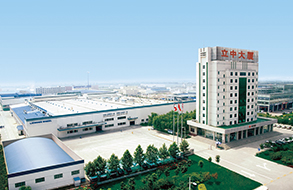
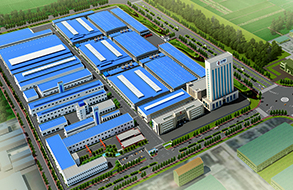
- Asian Metal: Consumption in the auto industry has been declining for 14 months, which impacted the secondary aluminum alloy market greatly, so how do you think of the demand in Q4?
- Mr. Zang: Based on the current auto consumption data, the auto market is still sluggish, so the consumption in Q4 might still trend down. Sales for Japanese cars would maintain a slight increase but those for domestic cars would face a constant decrease. In Q4, the demand for die-casting aluminum alloy for auto parts would continue to slip while that for aluminum alloy for 3C electronics would be stable. Consumption for autos usually hikes in the second half of a year, so the demand in Q3 and Q4 would be higher than that in Q1 and Q2.
- Asian Metal: Supply of unwrought aluminum scrap was tight in Q3. What are the reasons for this and will the supply improve in Q4?
- Mr. Zang: Reasons for tight supply of unwrought aluminum scrap in Q3 are as follows: Firstly, the environmental protection pressure in Beijing-Tianjin-Hebei region, Shandong and Henan was heavy and aluminum scrap plants had to halt or cut production. Secondly, with primary aluminum prices dropping in Q3, aluminum scrap prices declined, so suppliers held back from sales. Thirdly, steel prices were low, which dampened the steel recycling activities. While the supply of aluminum scrap, a by-product in the process of steel recycling, decreased accordingly. Typically, the unwrought aluminum scrap market sees short supply in Q4 and this year would be no exception. However, as demand for secondary aluminum alloy is generally low this year, supply of aluminum scrap might be more compared with previous years.
- Asian Metal: From 1 July, 2019, the import of Zorba aluminum scrap was restricted. How did this affect your company?
- Mr. Zang: The import restriction on aluminum scrap has no direct impact on our raw material purchase as we nearly have no processing business in recent years. But the indirect impact is that the import volume will decrease a lot. As a result, the consumption for domestic aluminum scrap will rise and the supply might be tighter.
- Asian Metal:?Have you considered importing large volumes of Zorba aluminum scrap to produce secondary aluminum alloy?
- Mr. Zang: We don't think about that for the time being as the uncertainty in importing aluminum scrap is too much. For example, if the disparity of metal content in aluminum scrap is large, we will suffer a big loss. But we will consider purchasing composite ingot from Southeast Asia.
- Asian Metal: How did you react to the tight supply of aluminum scrap?
- Mr. Zang: As for tight supply, we first widened sources of aluminum scrap by adding purchase channels and we also imported parts of composite ingot.
- Asian Metal:?The strict environmental protection policy has been in effect for almost two years. Nearing Beijing, Hebei bears more environmental protection pressure. How did you deal with the problem?
- Mr. Zang: Firstly, we absolutely uphold the environmental protection policy and set up a special department for ecological protection, whose duty is to supervise the internal implementation of the policy. Secondly, we upgraded all production equipment based on national requirements and reached the standard level. Thirdly, we strengthened pre-treatment of wastes and tried to surpass the national standard. Fourthly, if the policy has adverse influence on our business in the future, we might move out of the area of Beijing-Tianjin-Hebei region.
- Asian Metal: As a leading company of die-casting aluminum alloy in China, what are the challenges for your development and will you go on expanding capacity in the future?
- Mr. Zang: Referring to the challenges, the first is about the overcapacity and disordered development of the secondary aluminum alloy industry. The supply is more than twice the demand. The second is about the legitimate operation of enterprises. There are many uncertainties from environmental production, taxation and local policies. For example, illegal emission and false invoice led to low production cost for illegal operating companies while local protectionism, especially in tax, caused unfair development for companies. The last is about the industry nature. The secondary aluminum alloy industry is labeled as a high energy consumption and high pollution one, while it is also a green circular one, which determines the development outlook of the industry.
- Talking about the future plan, we would build new plants in Wuhan, Zhanjiang and Yangzhou of Jiangsu from 2019 to 2020 in order to fulfill aluminum liquid demand from regular customers and expand market in Fujian-Jiangsu-Zhejiang. For the wheel plant in Thailand, we would set up a supportive aluminum alloy plant to make up for the short board of aluminum alloy exports in China. In addition, we prepare to open business in Southwest China. Lizhong Group won't compress operation but will adjust business according to market situation.
